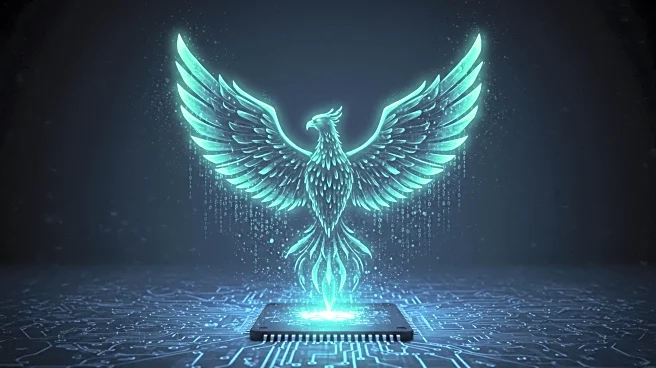What is the story about?
What's Happening?
The phenomenon of 'digital resurrection' is gaining traction, where AI technology is used to create digital avatars of deceased individuals using their digital remains such as texts, emails, and voice notes. This trend has sparked a mix of fascination and fear, as seen in recent events like Rod Stewart's concert featuring AI-generated images of deceased celebrities and Jim Acosta's interview with a digital recreation of a school shooting victim. Companies are increasingly offering services to create 'griefbots' or 'deathbots,' raising questions about privacy, exploitation, and the impact on the grieving process. The technology, enabled by large language models like ChatGPT, allows for realistic and interactive avatars, making virtual immortality more accessible.
Why It's Important?
The rise of digital resurrection technology poses significant ethical and psychological questions. It challenges traditional notions of grief and mourning, potentially altering how people cope with loss. While some find comfort in interacting with digital versions of loved ones, others worry about the implications for privacy and consent, as deceased individuals cannot control their digital legacy. The technology also risks creating dependencies that may hinder the natural grieving process. As the market for digital resurrection grows, it could lead to commercialization of grief, raising concerns about exploitation. This development reflects broader societal shifts towards technological solutions for emotional and existential needs, highlighting the need for careful consideration of its impact.
Beyond the Headlines
The digital resurrection industry raises profound ethical and theological questions. It reflects a cultural shift where technology is increasingly seen as a means to transcend death, potentially replacing traditional religious beliefs about the afterlife. This trend may indicate a deeper longing for connection and permanence in a rapidly changing world. However, it also risks pathologizing grief, suggesting that technology can solve emotional challenges that are part of the human experience. As society navigates these changes, it will be crucial to balance technological innovation with respect for personal and cultural values.

















